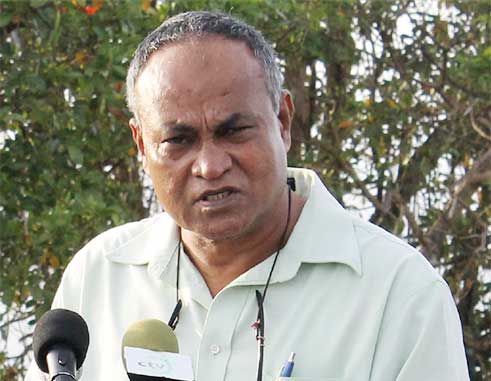It is a hard sell for the government to convince many that its decision to discontinue its annual $700,000 subvention to the Saint Lucia National Trust (SLNT) does not have any relation to the Trust’s recent disagreement of at least two projects that have attracted much controversy.
The Trust has spared no expense in decrying government’s consideration of a dolphinarium at Pigeon Island – the Trust’s headquarters – and the Desert Star Holdings (DSH) development in Vieux Fort.
For weeks now, the Trust has increasingly raised its voice against any move to implement either project that can potentially harm the natural environment that bears historical, cultural and psychological values, so much so that the Trust on occasions anticipated government’s withdrawal of the subvention. Alas, one of the Trust’s worst fears has materialized.
In its defense, government has stated that while the Trust remains a core ally for development and preservation of the country’s natural and other attributes, it (the Trust) needed to do a better job at running its affairs. With just over a third of the Trust’s annual budget now cut, the Trust finds itself in the crosshairs of what seems to be a political fallout.
The question that needs to be answered, however, is whether an organization that came into being as an Act of Parliament over four decades ago all of a sudden finds itself becoming irrelevant overnight. That it lost its status of referral agency under Physical Planning and Development Act in recent times seems to suggest that the mad rush towards development has found the Trust being too, for want of a better word, anti-development.
For the trust’s 36 employees and 1,833 members – and a growing number of is supporters – government’s discontinuation does not sit right, especially since the island is deemed to be a green island by brochures that attract visitors to its shores. It also seems that the fervent push made in the past towards protecting the country against the debilitating effects of climate change and its attendant effects were futile and expedient.
But all is not lost for the Trust except, of course, for a hefty handout it once enjoyed at the behest of the government. What the current dilemma affords the Trust is a time for pause to engage in some deep introspection as to how to get better, stronger, and more resourceful. It will definitely have to drum up more support in order to remain relevant and potent. Being independent might also come with its pluses because it would be forced to market itself as an agency that does not kowtow to any government for the sake of expediency.
The Trust must also seek even harder to enlist volunteers that might be willing to do the work that its lack of finances could not do, including regular koudmain to restore fading sites its manages to pristine condition. That way, it would also have more people on its side – both in deed and in voice.
Now is the time for the Trust to begin trusting itself more and depending on government less. The Trust must begin to trust its inherent strengths.














